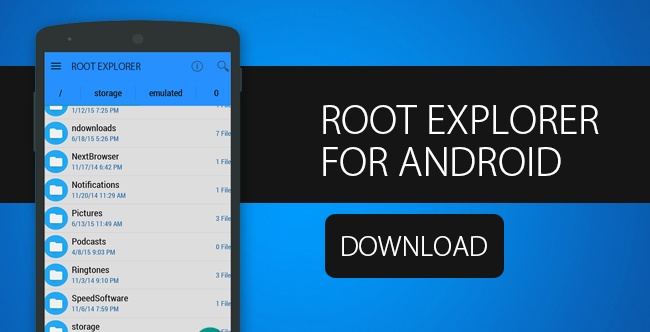Looking to boost your credit scores in 2023? Meet the best credit repair apps that help build credit scores in USA that help build stronger credit profiles.
Good credit saves you thousands on interest costs for loans and credit cards over time. But poor credit from late payments or high balances can really limit your financing options and hurt your interest rates.
Luckily, there are smart new app tools that make it easy to build a positive payment history and improve your credit scores. Whether you need to establish credit for the first time or rebuild from past issues, using the top credit builder apps consistently can help get you back on track.
In this comprehensive guide, we’ll explore what goes into your credit reports and scores so you understand what matters most. You’ll discover the quick benefits of being an authorized user on someone else’s account. We’ll also break down the leading credit repair apps to use based on your situation and needs.
With the right habits and tools, you can make measurable progress on your credit in just 6-12 months. Save thousands on better loan rates and qualify for the financing you need by raising your scores. Let’s get started!
Best Credit Repair Apps That Help Build Credit Scores in USA 2023

This comprehensive guide will provide an in-depth overview of what credit is, why it matters, the best apps to improve it, and other methods for building good credit.
What is Credit and Why Does it Matter?
Your credit history is a detailed record of how you’ve borrowed money and repaid debts over time. It includes information on credit cards, loans, mortgages, utilities, rent payments, and other accounts reported to credit bureaus.
When you apply for financing like a mortgage, auto loan, or credit card, lenders review your credit report and score to determine your creditworthiness and risk level.
Good credit means a lender feels confident you will repay debts responsibly based on your past history.
Maintaining excellent credit unlocks many financial benefits:
- Lower interest rates on loans, credit cards, and mortgages.
- Higher credit limits and larger loan amounts are approved.
- Easier approval odds for financing needs.
- Opportunities to rent apartments without large deposits.
- Improved chances of qualifying for jobs or insurance.
- Shows overall financial responsibility and maturity.
In contrast, poor credit may lead to higher borrowing costs, lower credit limits, and more difficulty getting approved for the financing you need.
Building and maintaining good credit takes time and diligent money management habits, but pays off significantly in the long run.
Understanding what goes into your credit scores and reports is the essential first step to improving your creditworthiness.
How Credit Scores Are Calculated?
The most commonly used credit score model is the FICO® Score, developed by the Fair Isaac Corporation. FICO scores range from 300 to 850 – the higher the score, the lower the perceived risk.
Lenders have their own score thresholds for approving borrowers. For example, a score above 700 is generally considered good credit, while 750 or higher is seen as excellent credit.
FICO Scores Weigh Five Main Factors:
- Payment history (35%): Records of payments made on time, late, or missed on all credit accounts. Includes information on late fees and collections efforts due to delinquencies.
- Amounts owed (30%): The amount of debt owed across accounts compared to total available credit limits. Also called the credit utilization ratio.
- Length of credit history (15%): How long credit accounts have been established. Typically based on the age of your oldest account.
- New credit (10%): Number of new accounts opened and credit inquiries made recently. Too many new accounts or inquiries can lower scores.
- Credit mix (10%): Various credit types, such as mortgages, installment loans, revolving accounts, and credit cards.
As you can see, payment history and amounts owed make up 65% of your score. Consistently paying all bills on time and keeping credit card balances low compared to limits are the most important factors in achieving excellent credit.
Other score boosting tips include monitoring reports frequently for errors, maintaining old accounts instead of closing them, and limiting new credit applications to only when truly needed. Utilizing a mix of credit types also helps build robust credit profiles over time.
Best Credit Repair Apps That Help Build Credit Scores in USA 2023
Using credit building apps is an increasingly popular way to start establishing a credit history and improving your scores.
These apps make the process very simple by linking to bank accounts or providing access to secured cards.
Here are the top credit building apps to consider:
1. Experian BoostTM
Experian Boost connects directly to your bank accounts to incorporate recurring bill payments, such as utility bills, streaming subscriptions, and cell phone plans, into your Experian credit report. This can help demonstrate responsible payment habits and quickly boost credit scores for some users.
To use Experian Boost, you securely link online bank accounts and allow the app to scan transactions. It identifies recurring payments that can then be added to your Experian credit file for consideration in their credit scoring models. Any on-time payments made for those bills get incorporated into your payment history profile.
Many people see significant score improvements soon after adding a positive bill payment history through Experian Boost. There is no charge for the standard service, making it an easy way to potentially get an immediate bump in your Experian credit score.
Best for: Fast credit score improvements with Experian.
2. Self
Self works much like a credit builder loan to help establish payment history and build credit scores. With the Self Credit Builder account, you set aside a monthly payment in an FDIC-insured account for a term between 12-24 months.
The regular monthly payments are reported by Self to all three major credit bureaus throughout the term. In the end, you receive your money back minus fees. Using Self-responsibility over time can generate a significant credit history profile to boost scores.
The minimum monthly payment is $25. There is a one-time $9 administrative fee to start the credit builder account, plus interest charged monthly based on the account balance.
Unlike credit cards, Self allows you to build credit history and scores without going into revolving debt. The larger the monthly payments and longer the term, the greater the potential improvement for credit scores.
Best for: Building credit history without debt.
3. Mint
Mint is a very popular budgeting and financial management app. While the main focus is on tracking spending and creating budgets, Mint also provides users with free credit scores and reports.
With Mint, you can connect accounts across all financial institutions to get a complete overview of your money. In addition to comprehensive budgeting and money tools, users get access to their latest credit score from TransUnion updated monthly.
An abbreviated credit report is also provided so you can see information reported by TransUnion, including account statuses, balances, and payment history.
Mint will also recommend ways to improve your credit by making on-time payments, lowering credit utilization, and correcting any inaccurate information. The app is completely free, making it useful for basic credit monitoring.
Best for: Budgeting with credit score access.
4. Kikoff
Kikoff offers various credit-building products and services designed specifically to help consumers establish and build a credit history.
Their core Kikoff Credit Account provides access to a $500 – $1500 line of credit that can be used to purchase items through Kikoff’s online store.
Kikoff then reports monthly payments to Equifax and Experian. Successfully making these payments on time over a term of 12 or 24 months will generate positive credit records to boost scores.
For people with no prior credit history, the Kikoff Credit Account is an easy way to start building a credit profile from scratch. There are no credit checks and pre-qualification is available.
Kikoff also offers an option called Credit Plus that functions like a secured credit card. Users submit a refundable security deposit and get access to a Visa card that can be used anywhere.
Kikoff reports monthly payments to the credit bureaus, helping establish a positive history.
Best for: Multiple account options to build credit.
5. Chime Credit Builder
The Chime Credit Builder Visa Secured is a credit card that helps users build a credit history without requiring a credit check or prior score. It does not charge any fees or interest on purchases made.
Chime’s credit builder card allows you to make a refundable security deposit from $200 up to $1000 into a secured account. Your monthly purchases are paid from that secured account balance, essentially acting as your spending limit. When you pay your bill, the payments are reported to all three major credit bureaus.
Responsible card management by making on-time payments in full every month will help establish positive credit records. Chime also claims users see an average score increase of 30 points. The card can be used anywhere Visa is accepted.
Along with building credit history, Chime provides early access to direct deposits up to 2 days faster. It’s a fintech challenger to traditional banks.
Best for: No fee, interest-free credit building.
6. Extra
The Extra debit card takes a unique approach to building credit history by turning your existing bank account into collateral. Essentially, Extra pulls money from your checking account every day to settle the previous day’s purchases made with the debit card.
These payments show up on your credit reports with Experian and Equifax as monthly installment loan payments. So using the Extra debit card responsibly over time helps establish a positive payment history and improve credit scores.
The Extra debit card service costs $149 per year. An optional rewards program with 1% cashback on purchases is available for an additional $50 annually.
According to Extra, members increase their credit score by an average of 48 points by regularly using the debit card to make their standard purchases. It also provides access to 55,000 free ATMs nationwide.
Best for: Rewards and building credit with a bank account.
7. Brigit
Brigit works very similar to a credit builder loan or Self. The app allows you to set aside monthly payments between $50-$150 for a term of 12-24 months in an FDIC-insured account. When the term completes, you get back the money deposited minus fees.
Throughout the term, the regular on-time payments are reported by Brigit to all three major credit bureaus. This helps establish a positive payment history and improves credit scores over time.
Another nice feature is the ability to access up to $250 in fee-free cash advances in minutes through Brigit. There are also no fees or interest associated with the credit builder account. Brigit only performs a soft credit check that does not impact your score when applying.
Best for: Credit building plus cash advances.
8. myFICO
For detailed credit reports and access to a variety of FICO credit score versions, the myFICO app and platform is very useful. It’s run by the Fair Isaac Corporation, the company that created FICO scores.
With myFICO, you can purchase complete copies of your credit reports along with your latest FICO scores from Equifax, Experian, and TransUnion updated each month. Reports provide extensive credit history details reported by each bureau.
The service also allows you to view different FICO score versions used for credit cards, auto loans, and mortgages. This helps you understand your creditworthiness for different product types.
There are several pricing options based on your needs. The most affordable tier at $19.95 monthly includes an Experian FICO score and report. To get full reports with all bureau scores, the cost ranges from $29.95 to $39.95 per month depending on features.
Best for: Monitoring reports and FICO scores.
When researching credit building apps, look for reasonable pricing, positive user reviews, strong data encryption, and educational resources on improving credit. Carefully read privacy policies and terms before signing up.
Using the top credit builder apps responsibly over time can help establish the payment history needed to improve your credit scores and overall creditworthiness.
Other Ways to Build Credit
In addition to helpful credit building apps, there are a few other recommended ways to effectively build credit history:
- Secured credit cards – These cards require an upfront refundable security deposit that becomes your credit limit. They report to credit bureaus like any other card. Responsible management builds payment history.
- Retail store cards – Basic store credit cards with low limits can help establish credit if used prudently. Make sure to avoid cards with high fees.
- Credit builder loans – Programs that report fixed monthly payments to credit bureaus that get deposited into a secured account. You receive the payments back minus interest fees later.
- Authorized user status – Getting added as an authorized user on a credit card of a family member or spouse with a good history. Their card activity gets added to your report.
- Rent reporting services – Specialized services that report on-time rent payments to credit bureaus each month if your landlord participates. Not all landlords work with them.
Managing current credit wisely also boosts scores:
- Keeping credit card balances below 30% of the limit.
- Paying all bills on their due dates.
- Not closing old credit accounts unnecessarily.
- Limiting new credit applications and hard inquiries.
Checking credit reports frequently is equally important to monitor for any inaccuracies that require dispute. AnnualCreditReport.com offers free reports from each bureau once yearly.
Fastest Ways to Build Credit
Building a strong credit profile takes patience and commitment over the years. However, there are techniques that can help accelerate the process substantially:
- Become an authorized user – One of the fastest ways to establish a credit history is by getting added as an authorized user on a spouse or family member’s credit card account if they have an excellent longstanding payment history. Their positive record gets added to your report.
- Use credit builder loans – Apps like Self allow you to quickly start demonstrating responsible payment habits with fixed monthly deposits, speeding up credit profile development.
- Pay all bills early or on-time – Payment history is the biggest factor in scores. Set up autopay and reminders as needed so payments are never late.
- Keep utilization low – Maintaining credit card balances under 10-30% of the limit shows lenders you can manage credit responsibility and minimizes interest payments.
- Limit new accounts – Each new application causes a hard inquiry on your report that can lower scores temporarily. Only apply for credit when truly needed.
- Dispute report errors – Incorrect information on your credit reports can significantly hurt scores. Use annual free reports to identify and dispute mistakes with the credit bureaus for removal.
- Enroll in credit monitoring – Signing up for monitoring through a reputable service alerts you to suspicious inquiries or accounts that could indicate identity theft before major damage is done.
As you build credit, being patient is important as it takes time. However, diligently using the right financial habits and tools can accelerate your credit profile development and scores significantly within 6-12 months.
Credit Score Ranges and Ratings:
Credit scores represent a snapshot of your creditworthiness. Here is what the score ranges generally mean:
| Credit Score | Rating |
|---|---|
| 800-850 | Exceptional |
| 740-799 | Very Good |
| 670-739 | Good |
| 580-669 | Fair |
| Below 579 | Very Poor |
Different lenders have their own standards, but you’ll typically qualify for the best rates and terms at scores above 700. Raising your credit score above 750 is a worthwhile milestone to aim for.
Credit Report Checklist:
Checking your credit reports at least once yearly is essential to ensure accuracy. Look for:
- Correct name, address, and personal information.
- All accounts listed actually belong to you.
- No duplicated accounts.
- Accounts you closed are listed as closed.
- Inquiries match your applications.
- No late payments are incorrectly listed.
Dispute any discrepancies with the respective credit bureau. Unresolved disputes can be added to your report.
Credit Monitoring Services
Enrolling in credit monitoring alerts you anytime a hard inquiry or new account is initiated using your personal information. Reputable options include:
- IdentityForce – Plans from $8/month.
- PrivacyGuard – Plans from $10/month.
- IdentityIQ – Plans from $6/month.
- Credit Sesame – Free basic plan or $16/month premium.
Frequently Asked Credit Questions:
How can I build credit fast without a credit card?
Some of the fastest ways to build credit without a credit card include becoming an authorized user, using credit builder loans, and signing up for rent reporting if available. Managing accounts responsibly demonstrates creditworthiness.
Is a credit score of 650 good or bad?
A FICO score of 650 is below the average score of 700. It indicates fair credit but not excellent. Scores above 700 qualify for most credit products with better rates. 650 is still an option for approval but may have higher interest rates.
Can you build credit by being an authorized user?
Yes, becoming an authorized user on a credit card with a good longstanding payment history can significantly help build your credit profile. The primary user’s payment activity gets added to your credit report even without using the card.
How long does it take to build a strong credit score?
It takes diligent financial habits over many years to build a very strong credit score of over 800. However, scores in the low 700s can be built in 6-12 months by responsibly managing new secured cards or credit builder loans and minimizing new accounts.
Does being an authorized user affect utilization?
For the primary owner, your utilization will incorporate the authorized user’s spending. However, being an authorized user does not impact your credit utilization since you aren’t borrowing on the account. Only the payment history is added to your report.
Can I remove myself as an authorized user?
Yes, you can contact the credit card company to request removal as an authorized user. The account history will then be taken off your credit reports within 30-60 days typically.
Does paying off collections help credit?
Paying off collections can help credit scores since it settles the debt. However unpaid collections also fall off reports after 7 years. Negotiating a pay-for-delete agreement is best to get the collection deleted when paying it off.
The Bottom Line:
- Excellent credit saves substantially on borrowing costs and provides financial flexibility.
- Payment history and keeping credit balances low are the biggest factors in credit scores.
- Responsible credit builder apps help quickly demonstrate a positive history.
- Checking reports frequently and disputing errors helps maximize accurate credit profiles.
- Patience in building scores paired with diligent money management is key.
Establishing and maintaining good credit over the long term has major financial benefits. Use the right tools and habits to build credit effectively.
With a commitment to responsible money management, you can achieve great credit scores and unlock better loan rates for big purchases and long-term savings.






